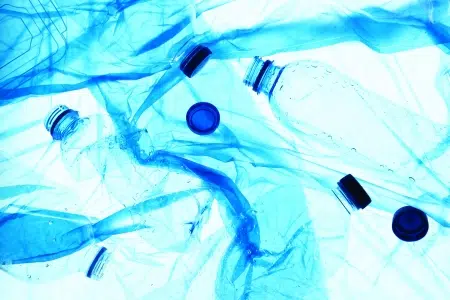The impact of plastic packaging on the environment – we can no longer shy away from this, yet we continue to produce excessive plastic waste in the UK and across the globe. According to a recent study, more than 1.3 billion tonnes of plastic could enter the environment globally by 2040.1 Plus, researchers predict that by 2050 there will be more plastic than fish in the world’s oceans, unless we change our behaviour. With such a pressing need to protect the environment, governments worldwide are looking at measures to significantly increase recycling and reuse and prevent further damage. And they’re looking closely at the effects of plastic packaging on the environment.
Here, in the UK, one such measure is the Plastic Packaging Tax (PPT), which takes effect from 1 April 2022. The tax aims to increase the use of recycled plastic in packaging by around 40%. That’s equal to carbon savings of nearly 200,000 tonnes in 2022 to 2023, based on current carbon factors. Our question is whether Plastic Packaging Tax will really reduce the impact of plastic packaging on the environment?
Reducing the impact of plastic packaging on the environment

The impact of plastic packaging on the environment
The impact on the environment is a stark reminder that there is no future in limited resources. To encourage more sustainable approaches to products and packaging, the new tax aims to deliver improvements in the way the UK manages waste plastic. In addition, it hopes to support changing behaviour in consumers to recycle and reuse products. As Ariadna Rodrigo, Zero Waste Europe, puts it, “Given the scale and urgency of the problem, a set of economic incentives to cut the production of new plastic while promoting reuse and recycling is urgently needed to stop plastic pollution at source.”[1]
On the surface, the PPT seems to make environmental sense – and also, financial sense. There is high public support for recyclable packaging communities: consumers and citizens all want to see increased social responsibility in their brands and products. A UK survey by INCPEN & WRAP on citizens’ attitudes & behaviours relating to food waste, packaging and plastic packaging highlighted how public concern over packaging has almost doubled.[2]
Our challenge is that to protect the environment, we need to use less – not more – plastic packaging. However, the use of recycled plastic in plastic packaging reduces the effectiveness of the plastic wrap, causing people to have to use more plastic packaging to secure each load. So while they might save on PPT, they’ll be paying more – and using more – plastic packaging. By packaging efficiently – and more responsibly – you can cut costs, and time, as well as showing your concern for the environment.
A more sustainable and eco-friendly packaging approach can boost your brand, products, and operations – and save you money.
For instance, at Acopia, we help our clients make informed decisions to choose eco-friendly and more sustainable plastic packaging, reducing the impact of plastic packaging on the environment which also matches organisations’ specific needs with packaging and process solutions.
A high-performance machine pallet wrap, like iWrap, is a sustainable choice.
Although using virgin plastic, it helps improve your sustainability, with benefits that include:
- A reduction in your plastic waste problem with 42.12% less waste plastic going to landfill
- A reduction in your cost spend on every pallet wrapped with 57 fewer pallets shipped per year and 3,696 more pallets wrapped per tonne of film
- A reduction in time wasted in re-wrapping pallets with 2,056 less roll changes per year
None of us can deny that the time is now, for businesses everywhere to exercise increased corporate social responsibility and move forward with renewable goals that match personal and public ambitions to protect and preserve our planet. It’s all about making choices – the right choices for everyone.
And one final note: updates continue to be added to the Plastic Packaging Tax and the government is still responding to queries on its many complexities. For instance, recent changes have been confirmed to the ‘PPT Statement’. So do keep an eye out for changes from HMRC here.
To help you prepare for what the tax will mean for you and how you can benefit, we have created a free eGuide: Is your business prepared for this new taxation?
Download your FREE Plastic Packaging Tax eGuide here
Or get in touch with us using the form below and let’s chat about how Acopia can help you make the best sustainable packaging and process choices that are right for your individual business.
